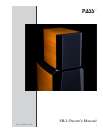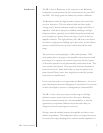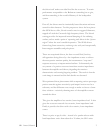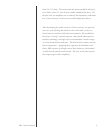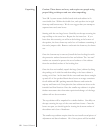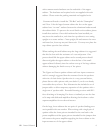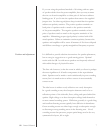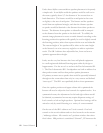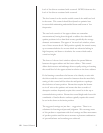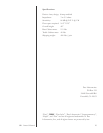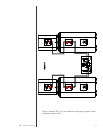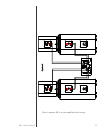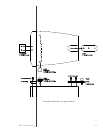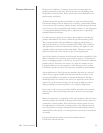
3
SR-1 Owner’s Manual
the driver itself makes non-ideal load for the crossover. To retain
performance comparable to the Rushmore something has to give,
and that something is the overall efficiency of the loudspeaker
system.
First off, the drivers must be intrinsically lower distortion and more
neutral in their character. For this purpose we chose the best pieces
that SEAS has to offer, Nextel coated cones in staggered diameters,
topped off with the Crescendo high frequency dome. The Nextel
coating provides for improved internal damping of the radiating
surface, and we made a point of operating each driver in the “piston
region” below the cone’s modal frequencies. The SEAS drivers
feature long linear excursion, overhung voice coils, and exceptionally
linear magnet assemblies and pole pieces.
These are exceptional drivers, the best we could find, but they
still appreciate being driven by a low impedance source to achieve
the most precise transient quality, the instantaneous “stop-start”
response necessary to impart musical realism. Unfortunately the
very nature of a passive crossover introduces reactive impedances
between the amplifier and drivers, degrading the transient
characteristics and creating lingering artifacts. The result is that the
sonic image is smeared and the little details are obscured.
We experienced these phenomena while comparing various prototype
passive networks against an actively quad-amped version used as a
reference, and the difference was enough to make us choose a brute
force solution – resistively shunting most of the amplifier current
around the driver.
This gives the amplifier a less reactive, lower impedance load. It also
gives the crossover network a less reactive, lower impedance load.
Finally it provides the driver with a less reactive, lower impedance
source.
There is a price to pay for this – instead of a speaker whose audio
band impedance varies from about 8 to 30 ohms, the SR-1 varies



